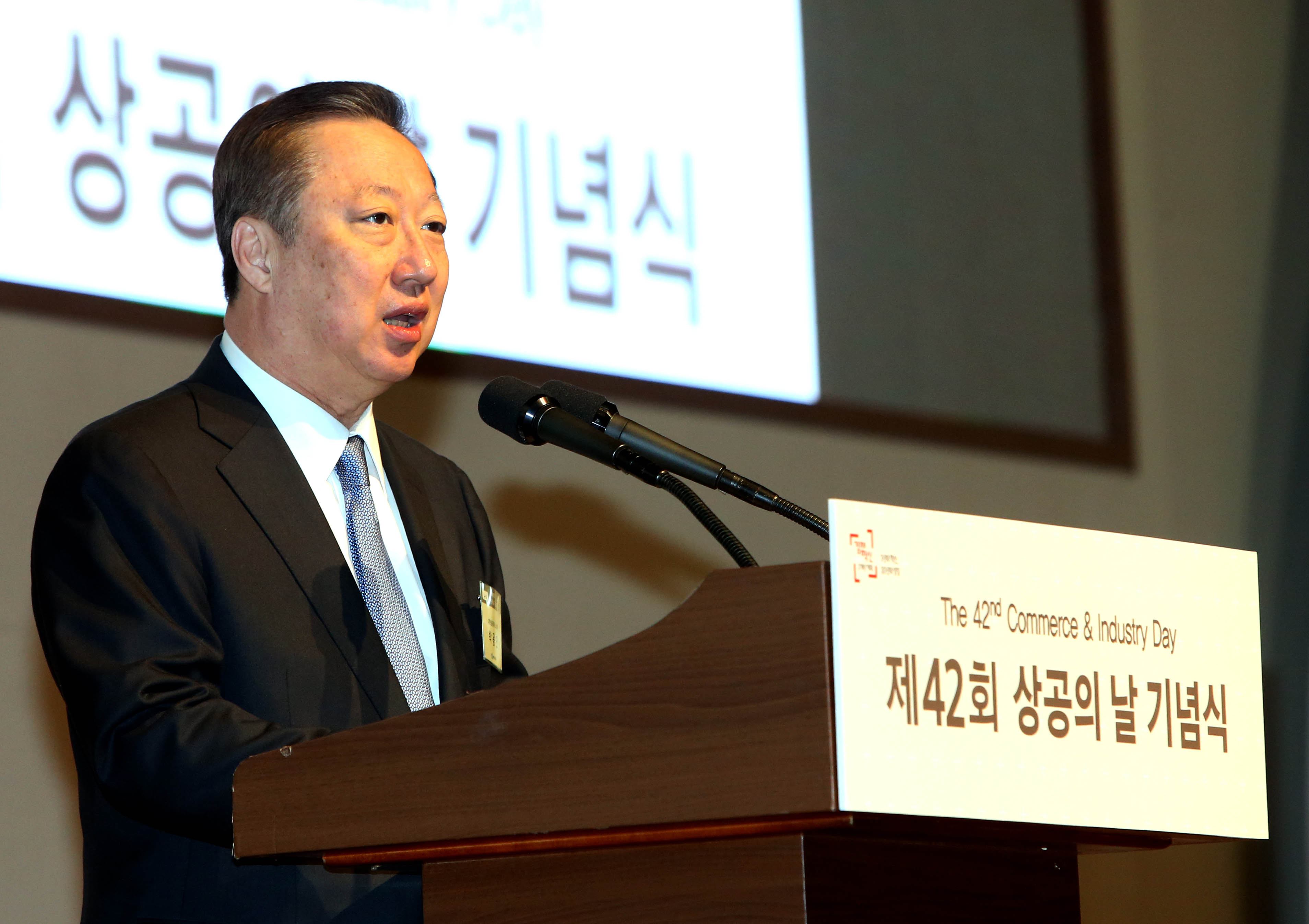South Korean companies will continue to do their part to boost the country’s economic growth, as they work toward achieving a per-capita income of $30,000, a business lobby group said Monday.
In a meeting with representatives from the ruling Democratic Party, Park Yong-maan, chairman of the Korea Chamber of Commerce and Industry said companies will take the leading role in bringing the national economy to the next level, Yonhap reported.
Economists say the South Korean economy is estimated to have grown 3% last year, driven by robust exports.
The KCCI chairman then called on the government to ease regulations, and work with businesses to devise measures to boost the service industry and resolve outstanding labor issues, according to a KCCI spokesman. Park asked the ruling party to seriously consider his suggestions and make them into law.
Meanwhile, South Korea’s chief economic policymaker said that the government will provide some 330 billion won ($311 million) this year to help turn outdated factories into ones that make use of automated and information and communication technologies.
In a visit to a firm specializing in product packaging, Finance Minister Kim Dong-yeon said the government will create an environment that allows local firms to update their production facilities.
Kim said around 20,000 factories will be transformed into so-called ‘smart’ factories by 2020 under the government initiative. He also vowed to help nurture the software sector to facilitate the creation of smart factories.
WTO Condemns US
The World Trade Organization’s ruling against the United States over the country slapping anti-dumping duties on steel pipes has been confirmed, Seoul’s trade ministry said Monday.
In July 2014, the US Commerce Department levied 9.9% to 15.8% anti-dumping duties on oil country tubular goods imports from South Korean steelmakers, such as Hyundai Steel, Nexteel, Seah Steel Corp. and Husteel.
OCTG is one of the fastest growing sectors in the pipelines market, and South Korean producers enjoyed a boom in the North American country’s oil and gas industry.
Five months later, South Korea submitted an appeal with the WTO against the tariff, arguing that the US calculation of margins for Korean products was not “reasonable” when compared with the rate of global profit margins.
In November of last year, the WTO dispute settlement panel sided with Seoul’s claim that the US incorrectly applied the term “same general category of products” in determining for OCTG products and didn’t use the actual profit data. Korean companies exported 98% of their products to the United States.
The ruling was confirmed as the US did not appeal within 60 days.


